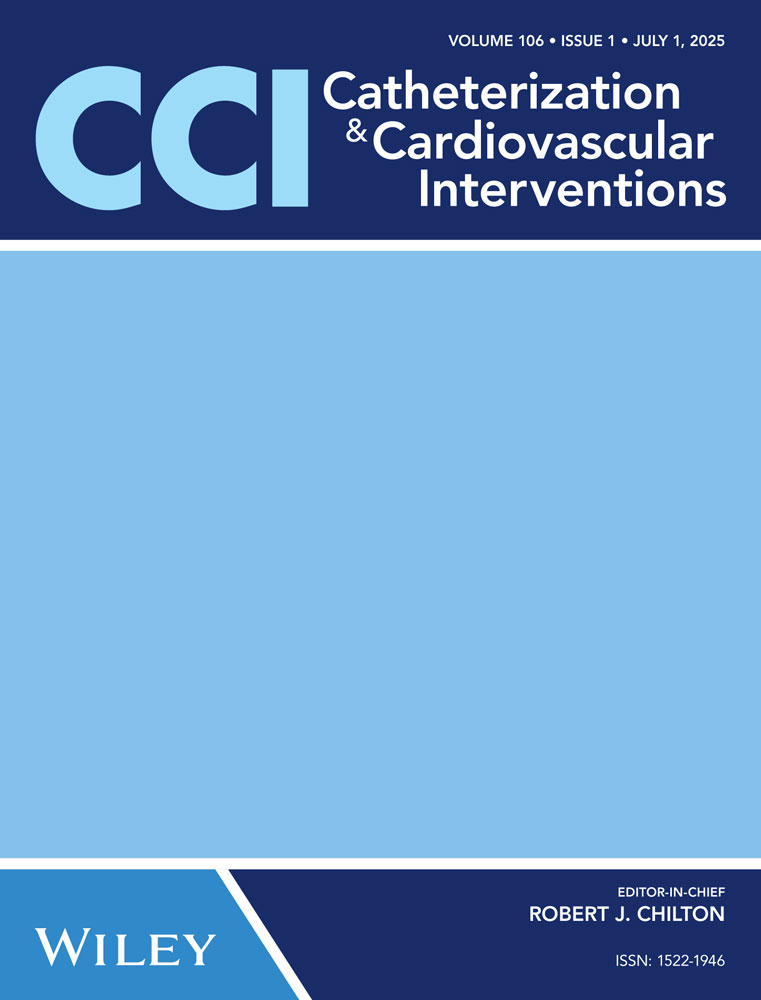Feasibility and efficacy of transradial access for coronary interventions in patients with acute myocardial infarction
Abstract
Transradial coronary intervention is a relatively new technique that may lower morbidity and improve patient satisfaction. A retrospective analysis was performed on 41 consecutive patients who underwent transradial coronary interventions. Twenty-nine patients had ST elevation MI (group A) and 12 patients had non–Q-wave MI (group B). Mean time to arterial access from hospital admission was 15.6 min, and mean time to balloon inflation from arterial cannulation was 25.3 min. All patients underwent successful stenting of the infarct-related artery. Over 75% of patients received glycoprotein IIb/IIIa inhibitors. All patients received aspirin and either clopidogrel or ticlopidine. There were no procedure-related complications. Mean hospital stay was 3.9 days and 2.8 days for group A and group B, respectively. The transradial approach to coronary interventions is both feasible and safe in patients with acute myocardial infarction. This option may be most appealing in patients at high risk for developing vascular complications of arterial access. Cathet Cardiovasc Intervent 2002;57:167–171. © 2002 Wiley-Liss, Inc.




